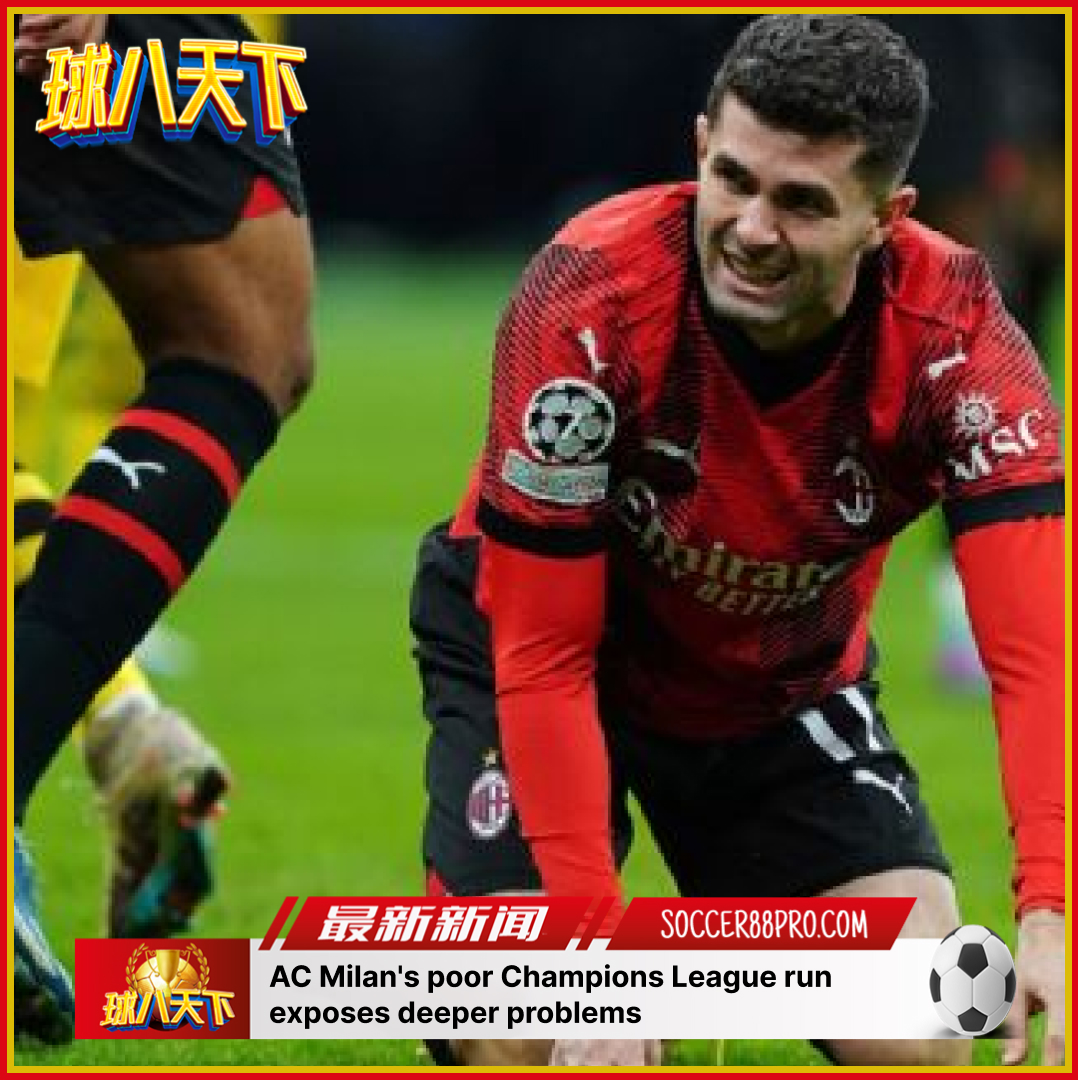AC Milan’s poor Champions League run exposes deeper problems

So much for best-laid plans. AC Milan’s chances of advancing to the knockout phase of the Champions League, following their 3-1 home defeat to Borussia Dortmund on Tuesday, are now hanging by a thread. And, a particularly flimsy one at that.
They need to win away to Newcastle United while hoping that Dortmund, who have already qualified, find the motivation to beat Paris Saint-Germain at home.
Yeah, good luck. Milan’s entire Champions League campaign has been about might-have-beens and near-misses, and the Dortmund game was no exception.
Twice in the first five minutes they should have taken the lead, first when Olivier Giroud failed to connect on Davide Calabria’s put-it-on-a-plate cross and then when Giroud himself offered up a milquetoast penalty from the spot, which Dortmund goalkeeper Gregor Kobel saved.
Then, after Marco Reus had given the visitors the lead, Milan found the equalizer with Samuel Chukwueze and, again, failed to turn chances into goals. Sometimes it was because Milan were unlucky, sometimes because Dortmund defender Mats Hummels had one of those turn-back-the-clock games, and sometimes because Milan were just wasteful.
You want a turning point? How about Christian Pulisic’s acrobatic goal-bound finish somehow finding the back of Dortmund’s Julian Ryerson, rather than the back of the Dortmund net?
Then there’s what followed moments later: Milan losing the ball and Tijjani Reijnders attempting a routine tactical foul to stop Jamie Bynoe-Gittens’ counterattack with about as much enthusiasm as a teenager tasked with putting down his phone. As Bynoe-Gittens raced into the Milan’s half, Malick Thiaw chased him down and, in so doing, pulled a muscle. Milan boss Stefano Pioli, left without able-bodied central defenders, was forced to send on midfielder Rade Krunic and Dortmund went on to score two goals in transition.
Was Reijndres fluffed tactical foul the proverbial butterfly that caused a yellow-shirted tsunami crashing into Milan’s goal? Who knows? But in Milan’s post-mortem, it felt that way.
If you’re a determined glass-half-full type of person, you could look at Milan and bemoan misfortune.
They got drawn into the toughest group. They had the upper hand against Newcastle at home and Dortmund away but were unfortunate to be held to a draw. They beat Paris Saint Germain. They, again, created plenty against Dortmund at home but failed to qualify.
Oh, and they went into the game against Dortmund with a ridiculously long injury list. No fewer than eight players were unavailable (including their star man, Rafael Leão), and a bunch of kids on the bench. (Francesco Camarda, who became Serie A’s youngest ever player at 15 years of age this past weekend, would have been there too, if UEFA rules didn’t mandate that you have to be at least16.) In fact, Milan couldn’t even fill the bench and that’s despite calling on someone named Chaka Traorè, an 18-year-old who ended up making his debut.
That’s one reading and there’s some truth to it. But there’s some uncomfortable home truths as well. Creating all those chances was great, but if you score zero goals in your first three group games, something is wrong.
Giroud has been magnificent and timeless, even at 37 years of age, but going into the season with Luka Jovic as the only alternative is asking for trouble. Jovic, in case you don’t recall, is the guy who scored 27 goals in 2018-19 with Eintracht Frankfurt, got himself a big money move to Real Madrid and, since then, has managed just 20 goals in four and a half seasons.
It’s not as Jovic doesn’t try (against Dortmund, he came on and hit the woodwork) and maybe it made sense to see if he could resurrect his career, but he feels like a walking, talking bad vibe. Just as Pigpen had that cloud of dust and schmutz following him everywhere on Peanuts, Jovic looks like he’s enveloped in a cloud of bad karma.
To be fair to Pioli, in the manager’s vision, the Plan B to Giroud likely involved playing one of Leao or Noah Okafor up front in his up-tempo, high energy version of Milan and Jovic was meant to be the break-glass-in-case-of-emergency guy. That’s great, but with those two guys out this was an emergency. And the point is that, in an emergency, you want a useful solution and this isn’t it.
There’s also a point to be made about Milan’s midfield and the absence of a reliable playmaker who can act as a de facto point guard, dictate play and tempo and offer some creativity. You don’t necessarily need to have one to be a good team — Liverpool arguably don’t have one, nor do PSG or Tottenham — but against opponents who sit and play on the counter, such a figure can come in very handy.
Milan in theory have two on their books. One is Ismaël Bennacer, who has been injured since May, and the other is Yacine Adli, who started all of one league game last season and made his first-ever Champions League start against Dortmund.
In the long run, Milan will be fine. They’ve invested in youth, they play attacking football, they’re proactive, they’re fans show support and faith (and that matters). The direction of travel is the right one.
The problem is that the Champions League group phase isn’t in the long run. It’s a very short run and it’s one of those few situations where the folks who mindlessly say stuff like “it’s a results business” are right. Performances may be what matters in terms of improving as a club, but results are what get you into the round of 16 of the Champions League.




